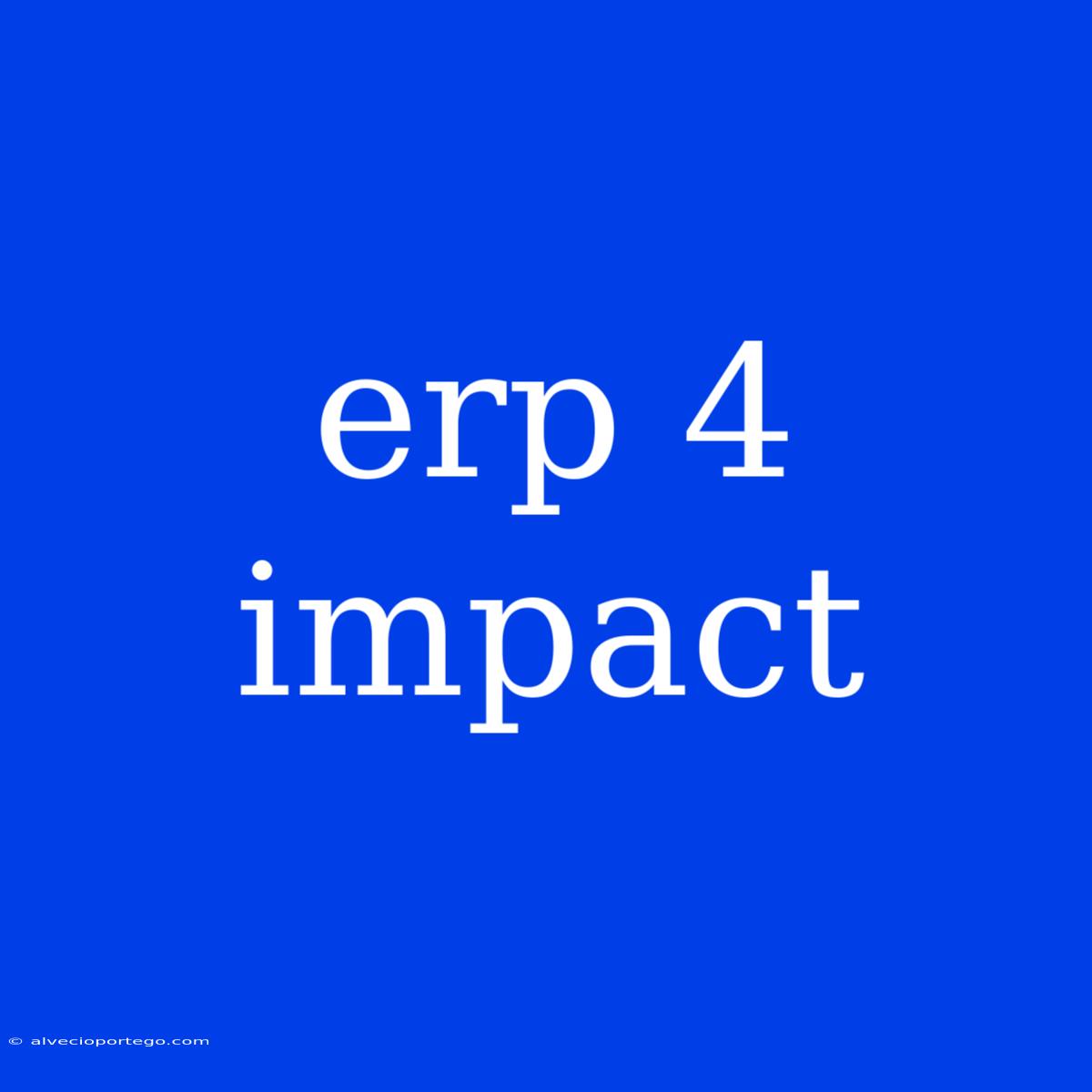ERP 4.0: The Future of Business Operations
The rapid advancement of technology has brought about a new era in business operations, characterized by interconnected systems, intelligent automation, and data-driven insights. This evolution has led to the emergence of ERP 4.0, a transformative approach to Enterprise Resource Planning that leverages the power of Industry 4.0 technologies.
What is ERP 4.0?
ERP 4.0 represents the next generation of ERP systems, built on the foundations of cloud computing, artificial intelligence (AI), Internet of Things (IoT), blockchain, and big data analytics. It goes beyond traditional ERP functionalities, integrating seamlessly with various business processes and departments, including:
- Manufacturing: Real-time production monitoring, predictive maintenance, and automated inventory management.
- Supply Chain: Enhanced supply chain visibility, demand forecasting, and optimized logistics operations.
- Finance: Automated accounting processes, real-time financial reporting, and fraud detection.
- Human Resources: Talent management, payroll processing, and employee performance tracking.
- Customer Relationship Management (CRM): Personalized customer experiences, targeted marketing campaigns, and customer service automation.
Key Benefits of ERP 4.0
1. Increased Efficiency and Productivity:
- Automation of repetitive tasks, freeing up employees to focus on higher-value activities.
- Optimized workflows and streamlined processes, leading to increased productivity.
- Real-time data access and analysis, enabling faster decision-making.
2. Improved Customer Experience:
- Enhanced customer service through personalized interactions and faster response times.
- Improved product quality and timely delivery due to optimized supply chain management.
- Data-driven marketing campaigns tailored to customer needs and preferences.
3. Enhanced Agility and Flexibility:
- Cloud-based architecture allows for scalability and adaptability to changing business needs.
- Real-time data insights enable quick adjustments to market trends and unforeseen circumstances.
- Integration with emerging technologies facilitates continuous innovation and competitive advantage.
4. Reduced Costs and Improved Profitability:
- Automated processes and optimized workflows minimize manual errors and operational costs.
- Data-driven insights enable resource optimization and waste reduction.
- Improved forecasting and demand planning minimize inventory holding costs and stock-outs.
5. Enhanced Data Security and Compliance:
- Blockchain technology ensures data integrity and security across the entire system.
- Advanced security measures protect sensitive data from unauthorized access.
- Compliance with industry regulations and standards is simplified through built-in functionalities.
The Future of ERP
ERP 4.0 is not just a technological advancement; it's a paradigm shift in how businesses operate. As technology continues to evolve, we can expect further integration of AI, machine learning, and other emerging technologies into ERP systems. This will lead to even more sophisticated automation, improved decision-making, and enhanced customer experiences.
Companies that embrace ERP 4.0 will be well-positioned to thrive in the digital age, gaining a competitive edge through increased efficiency, agility, and innovation. This transformative technology holds the key to unlocking the full potential of businesses in the years to come.

